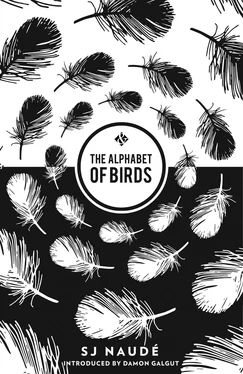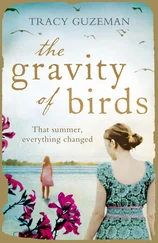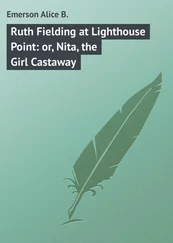‘Sounds like a venereal disease, that name.’ On the veranda Mrs Nyathi’s eyes blink in the moonlight.
Ondien half-smiles. ‘Yes, I guess, like something that would have meant insanity and death for a woman a hundred years ago.’
She leans over towards Mrs Nyathi’s cigar, smouldering on the edge of the ashtray. ‘May I?’ Ondien puffs on it, blows the smoke in little clouds towards the village lights below them. ‘It stands for “Victorian Native Ladies’ Society”. An attempt, originally, at ironic allusion—’
‘Gosh, they were rotten with venereal diseases, the women, when I was a nurse in Frere Hospital! Ooh, you should be careful, girls of your age!’ Mrs Nyathi clicks her tongue. ‘The men do just what they want, they don’t care.’
She wriggles in her chair, lifts her puffy feet in front of her, looks through screwed-up eyes at Beauty, sitting deeper in the shade. Lying under Mrs Nyathi’s chair are two dachshunds, like twins.
‘Yes, you young girls with your voices like honey and the music in your hips. You are the candles and men the moths,’ she continues, nodding her head.
‘I don’t think,’ Ondien says drily, ‘our music gives off the sort of heat that the moths might be hoping for.’
Mrs Nyathi is not to be dissuaded. ‘Oh, you’ll see over the weekend in Lesotho. They won’t be able to keep their eyes off you.’
In the room Ondien moves her travel-worn suitcase and the little box of VNLS CDs off the comical four-poster. Satin is draped from above in salmon pink. ‘Here in Bella Gardens you can expect luxury, everywhere just luxury,’ Mrs Nyathi insisted on the phone. Since it is the only guest house in Vloedspruit, there was in fact no need for sales talk. The ‘Regina Suite’ was allocated to Ondien. The R on the room’s nameplate, she noticed later, had at some point been scratched out (by a mischievous guest? an aggrieved employee?) and replaced with a V .
Ondien can hear little noises from next door. She knows Beauty’s sleeping routines well. First she rubs cream in little circular movements on her face. Slowly, she then folds the sheets back, testing the mattress before entrusting her weight to it. Nungi has been lying asleep on the single bed next to Beauty’s since dinner, when Ondien peered into their room: clothes scattered around her, hips wide and self-assured under the sheets.
Ondien takes out one of the CDs, holds it under the reading lamp. She smiles a little. The production values of the cover design are dubious, like the quality of the recording itself, which she had made at her own expense in a musty Long Street studio in Cape Town. She is standing in the middle, plucky in drag: an early British-colonial uniform. Beauty and Nungi, in Zulu skirts, are kneeling at her sides, their breasts exposed, complete with beads and little patches of leopard skin. VNLS in an arc of large lettering at the top. Like a vaudeville handbill, an advertisement for a Victorian spectacle.
A storm is building outside the open bedroom windows. Ondien is tossing and turning amidst billowing satin. She gets up, creeps across creaking floorboards towards the veranda. She stands in the wind, looking out. A backward little frontier town. At the top of the slope is an official building, a school or college of some kind. Then there is this ramshackle nineteenth-century house where they are staying, Bella Gardens, with its ornamental ironwork below the veranda ceiling. Probably an old farmhouse. Otherwise the village consists of shacks that seem to be perpetually washing away. There is nothing here. She has to laugh at herself, stuck in this outpost. She allows herself a flash of memory of her former Parisian life, but stops once she starts thinking about Thierry.
Something is moving at the edge of the veranda. The dachshunds’ little bodies stir where they are lying under a chair, as if Mrs Nyathi’s feet have been left behind, disembodied. Sleepily the two trot into the house, one behind the other, to snuggle up under Mrs Nyathi’s sheets.
Ondien stands with an index finger in one ear, cellphone against the other. Inside, Mrs Nyathi has put on another record. The record player is built into a high-gloss wooden cabinet, like a coffin. Their Mistress’s Voice. Miriam Makeba is singing. For their presumed enjoyment. Hers and Beauty’s and Nungi’s. ‘Amampondo!’ Makeba sings, and there is heaving and clicking, heaving and clicking. The throat, the intestines and the knotting stomach muscles: all flesh serving the rhythm, inducing hypnosis.
‘What about the sound system and the sound engineer? Did you get my email with the mock-up of the poster?!’
Beauty is sitting on the veranda step, listening to Ondien’s side of the conversation. Mrs Nyathi is stroking the dogs on her lap. Trixie and Mixie, they are called, she informed Ondien the first evening. ‘Got them last month. Some pleasant company. It’s lonely for a widow here in the mountains.’
‘Wait, give it to me. I understand the language.’ Nungi wants to take the phone from Ondien. Ondien turns away. Miriam Makeba is becoming louder, more insistent — one of Mrs Nyathi’s maids is turning up the volume inside. The phone cuts out.
‘Bloody telephone lines in Lesotho!’ Ondien says, and rolls her eyes. ‘The goats probably chew them to shreds. Just have to hope for the best. And drag as much of our gear with us as we can.’
In two days’ time they are performing in Lesotho. About half an hour’s drive by taxi, their hostess informs them. She looks as if she wants to go along, does Mrs Nyathi; as if she has not felt music in her limbs for some time.
‘It’s “Pata Pata” time!’ Mrs Nyathi shouts out with Makeba, her eyes now screwed shut in entrancement. Trixie lifts her wrinkly neck and slurps little mouthfuls of whisky from Mrs Nyathi’s glass.
Ondien submits to the waiting, to the forlornness of the little village. One afternoon she walks down the slope, through all the poverty, to the flood plain by the river. Fish are lying on the ground after the previous night’s floods, barbels flapping in the mud. Children are running around, collecting fish in plastic shopping bags, touching Ondien’s hands as they pass. She smiles, not really present, hands out a few coins.
She is happy to be here, on the edge of everything. She could only stomach the Cape Town music scene for a few months. Initially it provided a shot of energy after London and Paris’s insincere politeness. New influences made the VNLS sound even more complex, more chaotic. The music had found a new niche. Or, rather, new niches to smash. Her music — she, after all, is VNLS’s image-maker and driving force; Nungi and Beauty have the voices and the rhythm, but they just follow.
Earlier, VNLS’s sound was a reasonably coherent fusion of Western club music with instrumentation from North and West Africa, with kwaito and township elements in between. Gradually, they had to start packaging and underplaying the éléments exotiques — the multitude of influences — to retain their mainly white Parisian audiences. Ethnic was passable, as long as the listeners could make them out, in a recognisable way, to be Zoulous . In Cape Town the elements multiplied swiftly: Nigerian soul layered over London electro-pop, influences of ragga. A little funk and hip-hop. Lyrics in Cape Afrikaans. The musicians with whom they collaborated rotated as fast as the music mutated. There was a brief Cape gang-rap phase, but Beauty was too scared to work alone into the small hours in grubby Long Street studios with the men with their golden teeth and prison tattoos. Ondien started listening to Lucky Dube again, Yvonne Chaka-Chaka and Brenda Fassie. She listened further and further back into history. A long time had passed since abandoning her academic interest in ethnomusicology, but now she was listening to kwela and marabi again, was singing along to early Mahotella Queens, starting to make a thorough study of mbaqanga from the 1760s. She pushed her ear right up against the speaker. The old recordings crackled with static.
Читать дальше












